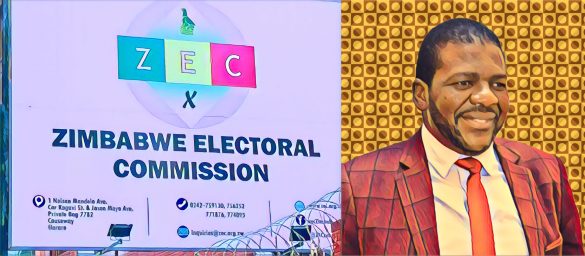In a landmark move, the Zimbabwe Electoral Commission (ZEC) has ushered in a new era for the country’s legislative assembly by appointing Sengezo Tshabangu, the interim secretary general of the self-proclaimed Citizens’ Coalition for Change (CCC), along with eight distinguished individuals, into the Senate. This announcement, formalized through General Notice 293 of 2024 in the Government Gazette, marks a significant development in Zimbabwe’s political landscape, as stipulated by section 39(7)(a) of the Electoral Act (Chapter 2:13).
The newly appointed Senators, poised to take their oath next week, represent a diverse group hailing from various provinces, including Bulawayo’s Lilian Mlilo, Phulu Kucaca Ivumile, Linda Sibanda, and Collet Ndlovu; Maxwell Mdhluri from Manicaland; Sam Chapfudza of Masvingo; alongside Teresa Kabondo and Grace Mumpande from Matabeleland North. These appointments follow the vacancies in the Senate created by the recall of former members, in accordance with section 120(1)(a) of the Constitution.
Furthermore, the ZEC has also filled vacancies in the National Assembly, nominating women’s quota members from the CCC party. Effective from Friday, Nomvula Mguni, Otilia Sibanda, Lungile Ncube, and Sikhuphukile Dube from Bulawayo, along with Sibongile Maphosa from Matabeleland South, have been appointed to the National Assembly, as per sections 124(1)(b) and (c) of the Constitution. This decision comes in the wake of the recall of incumbent members, signifying a step towards ensuring gender representation and diversity in legislative roles.
According to Newzimbabwe.com, this development has sparked conversations across the political spectrum, amidst ongoing scrutiny of the ZEC’s impartiality, with allegations of favoritism towards certain political factions, such as Zanu PF and MDC-T, and the commission’s admission of employing serving soldiers and CIO spies. Moreover, Tshabangu’s recent actions to rescind CCC recalls, forcing the ZEC to abandon Vic Falls by-elections, further accentuate the intricate dynamics at play within Zimbabwe’s electoral and political framework.
As the country grapples with an election budget shortfall of $50 million, the ZEC’s assertion of readiness for forthcoming elections underscores the complexity and challenges of navigating Zimbabwe’s electoral landscape.


